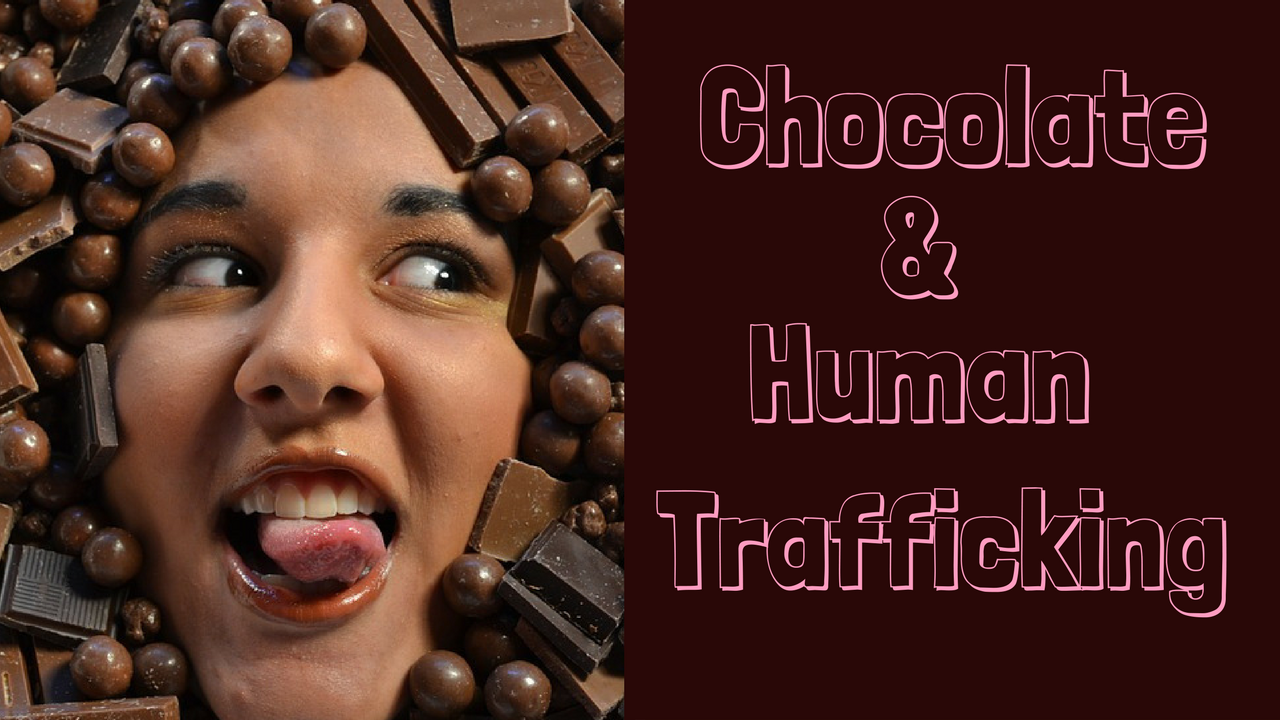Chocolate and Human Trafficking

I created my first blog back in 2011 after seeing a website that was campaigning for Nestle to use traffick-free chocolate in their kit-kat bars. It shocked the knickers off of me, so I called Nestle in Japan (because I was living in Tokyo at the time) and asked if it was true.
Long story short - their CSR manager told me that human trafficking was a problem in other countries and not Japan, so their CSR program was more concerned with picking up litter in the neighbourhood around their office. I'm not kidding; he actually said that!
GMO Chocolate
I just read an article on the World Economic Forum with the title Chocolate is on track to go extinct in 40 years. The idea is that climate change is going to make conditions unfavourable for cacao trees, which is why scientists are trying to create genetically modified trees to save humanity from a chocolate ice-cream-less future.
Naturally, the first thing that popped into my head was "what impact will this have on human trafficking?"
Unless the trees also grow money, it may not make any difference. Saving a crop which is grown by people who are exploited doesn't change the conditions where exploitation exists. If anything, it would enable it to persist.
Actually, the scientists are teaming up with Mars, so the second thing that popped into my head was "hang on, Mars use actual chocolate in their chocolate bars?" Perhaps I would have known that before if they'd made the effort to use Fair Trade chocolate.
Another commodity that is going to go away soon is helium! (Fun fact of the day).
I feel that should chocolate go extinct, the human trafficking wouldn't stop. It will just go to less delicious outcomes. People will always exploit people. It has been human nature for millenia. The people who do it know what they are doing is wrong so telling them it is wrong won't help much. The only way to do things nowadays is to vote with your wallet sadly. Which sucks for things where there are no alternatives.
Human trafficking has been growing for years as economic conditions make people more vulnerable to exploitation. Do you think that most people would be able to make the connection between that and inequality growth or would it be too difficult for them?
I think people are aware that lower economic conditions cause exploitation. I also believe that some people intentionally surpress people's economic condition for their personal gain through exploitations of legal systems and economic mechanism.
I only eat chocolate from small suppliers, and my main motivation for this, I have to admit, is that it's vastly better quality. I used to be in the habit of grabbing a cheap chocolate bar, but the quality of chocolate produced by the big companies that make most of the cheap chocolate in the UK, where I live, has deteriorated so sharply that I can't stand the stuff now, and many of my friends feel the same way. Chocolate made by small fair trade firms is more expensive, but not THAT much more expensive.
Now to your link to the article that says chocolate is "on track" to go extinct, but the good people at Mars are helping to save the world's chocolate supply by funding development of GMO cacao trees.
To suggest an answer to your question about the impact that one massive multinational controlling the development of the world's cacao trees might have on human trafficking...
WHAT COULD POSSIBLY GO WRONG?
I'm old enough to remember the conversations in the early days about GMO's being about how they could solve World hunger. If they can get that right, then they can... oh, wait...
@penston, this is a very interesting subject. I would love to read more about the human trafficking aspect. How are people being trafficked into the support of this industry? I'm not questioning that they are. I'm just interested, when I read something like this, to see more detail and statistics, and know how the statistics were accumulated and calculated.
I would also be interested in reading more about the whole process of cacao cultivation, harvesting and processing. This would help to illustrate how humans might be being exploited in this industry.
I've upvoted and resteemed this article as one of my daily post promotions for the @mitneb Curation Trail Project. It will be featured in the @mitneb Curation Trail Project Daily Report for 11 FEB 2018.
Cheers!
There are different ways that people end up being trafficked. The biggest producers of cocoa are Ghana and Ivory Coast and it's not unusual for children from neighbouring countries to be sold by a family member to a plantation. While there, they receive no education. When they become adults, it's more expensive to keep them, so they're let go and replaced with more children.
Most organisations tend to use inflated numbers to sensationalise the scale of the problem, but getting reliable data is difficult. When I first began researching the subject, many NGO's were claiming that there were 27.5 million people who were modern-day slaves, whereas the figure from the UN was closer to 2.5 million.
Finding people who are trafficked is relatively easy. When you hear their stories, patterns begin to emerge very quickly. Traffickers approach people who are living in poverty with a solution to their economic woes, promising a job for them or a family member. The reality turns out to be quite different from the story.
There's waaaay more information online now than there used to be. I'd recommend approaching it with scepticism, but you'll get a general idea.